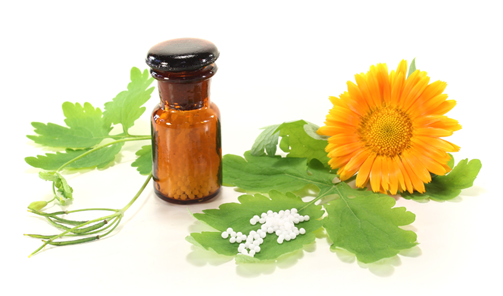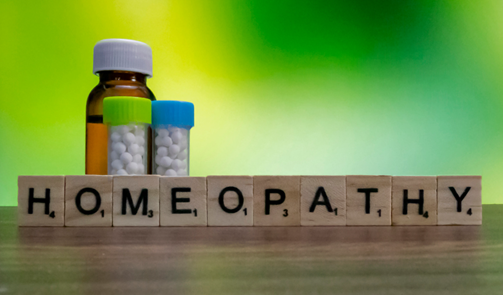
 |
‘’An allopath comes and treats cholera patients and gives them his medicines. The Homeopath comes and gives his medicines and cures perhaps more than the allopath does because the Homoeopath does not disturb the patients but allows nature to deal with them’’.
- Swami Vivekananda
Introduction
The scientific method has discovered many tools and inventions. The evolution of modern science and its success in curing various diseases cannot get concealed from society. Regardless, there is another medical technique that completely differs from modern science. It is popularly known as Homeopathy.
A homeopathic remedy is a treatment that can alleviate suffering through two Greek words hómoios (similar) and páthos (suffering). The essence of Homeopathy is that it treats natural diseases with substances that have effects similar to those caused by the disease itself. Dr. Hahnemann was a German physician who formulated the system (10th April 1755 - 2nd July 1843).
 |
Homeopathy is an ancient and conventional method to treat and cure disease. It does not require modern tools and mechanisms. Nor does it have any close connection with innovations and inventions. There is a lot of contradiction and debate going on between both methods. Some say it is less effective, and some adherents say it is a better remedial alternative. Whether there will be any result of this discussion comes out or not, perhaps we all agree that both methods are efficient in curing diseases in their ways.
Its origin in India
Between 1829 - 30, Dr. John Martin Honigberger came to Lahore as a traveler. He was a physician and a practitioner of homeopathy from Austria. Later in 1839, a serious illness struck Maharaja Ranjit Singh of Punjab, and at that time, Dr. Honigberger got an invitation to treat him. Subsequently, his success in preventing cholera epidemics in Calcutta made the homeopathy system famous across the country.
In the Indian medical system, homeopathy got recognition through the Homeopathy Central Council Act of 1973. People in India believe it is ancient medical wisdom that could eradicate ailments.
 |
Definition & its principles
According to the National Health portal of India, Homeopathy can be defined as a “dynamic, holistic and vitalistic system of individualistic drug therapeutics, based on the law of similars, capable of curing diseases that are curable and relieves symptoms of incurable nature”.
Homeopathy is a traditional and natural medicine used by more than 200 million people globally. Based on the fundamental principle of 'Similia Similibus Curentur' - or 'like cures like', homeopathy is a holistic science that harnesses the energy of natural substances to bring healing to the body and mind. By giving a very small dose of a substance that would cause similar symptoms to those being experienced, homeopathy triggers a healing response in the body and helps remove and eradicate physical, mental, and emotional ailments.
Homeopathy is recognized worldwide for its unique benefits and is often sought out for its ability to treat acute and chronic conditions that have not responded to modern medical treatments. With its power to restore balance and harmony to body and mind, homeopathy truly is a savior in times of need.
Formulation of homeopathic medicines
Homeopathy is an alternative treatment that offers a safe, gentle, and effective approach to healing current health conditions and preventing the occurrence of future ones. This holistic and individualistic form of healthcare harnesses the power of nature and natural resources, such as plants, flowers, roots, leaves, minerals, and chemicals, to create personalized treatments tailored to each individual's unique needs.
The process of making these homeopathic medicines begins with the dilution of substances that may have an impact on the body at higher concentrations. Drug dynamization is a process employed to ensure the safety of these homeopathic medicines while enhancing their dynamic properties. This procedure removes the toxicological effects from crude substances and has been gaining traction in recent years, making homeopathy an increasingly popular choice among those seeking an alternative form of healthcare.
With personalized treatment tailored to each individual, homeopathy is a safe, gentle, and effective approach to healing. The raw materials used in preparing homeopathic medicine are not harmful to humans, as it eliminates all the toxicological properties.
Effective benefits of homeopathy
Homeopathy is confined by stimulating the body’s innate healing ability and can be used by everyone, from children to the elderly.
Homeopathic remedies can help treat chronic and long-term illnesses and acute complaints such as colds, flu, and other infections. Administering highly diluted doses of the substance to the patient can help to reduce the severity of their symptoms and promote healing.
It can also act as a form of preventative treatment. By boosting the body's immune system and improving a person's susceptibility to illness and infection, homeopathy can help keep a person healthy for longer.
 |
Its holistic nature considers the body, mind, and spirit of a patient to achieve the best possible outcome. The underlying philosophy of homeopathy is that each of us is made out of three distinct kingdoms: plants, minerals, and animals. Each of these three kingdoms has its distinctive qualities, and the task of the homeopath is to recognize to which kingdom the patient belongs.
- The first kingdom, plants, includes both herbal and homeopathic medicines. Plant remedies, and by extension, people in need of plant remedies, are characterized by great sensitivity and reactivity. This person experiences strong sensations and reacts to them accordingly. Plant remedies are used to treat physical ailments and emotional and spiritual imbalances.
- The second kingdom, minerals, includes both conventional and homeopathic medicines. Structure and maintaining the integrity of structure are the concepts that define a mineral remedy and person. These people often experience a feeling of being stuck in a particular situation with a lack of progress. They may also experience physical ailments related to structure, such as joint pain.
- Finally, the third kingdom of homeopathy is the animal kingdom. Animal remedies, and people who need them, are characterized by competition and the struggle for survival. The key to understanding a person in need of an animal remedy is to recognize the underlying need to achieve and the drive to succeed.
To truly understand the nature of a patient and the remedy he or she may need, a homeopath needs to understand the perceptions, feelings, and attitudes underlying the information related by a patient. Only then is it possible to understand to which kingdom the patient belongs? Moreover, a homeopath must also be sensitive to how each of the three kingdoms affects the patient.
For example, a person in need of a plant remedy may be more emotionally sensitive and reactive, while someone in need of a mineral remedy may be more physically rigid and controlled. By understanding the individual characteristics of each kingdom and the underlying perceptions, feelings, and attitudes of the patient, the homeopath can provide the most effective and appropriate remedy.

A cost effective alternative
Along with the health benefits of homeopathy treatment, one of the main benefits is that it is cost-effective. Medical facilitators charge huge amounts of money from their patients because it involves a lot of tests, scans, and checkups. By all means, this justifies its costs. In homeopathy, a bare minimum cost is involved and paid.
Nowadays, the speed at which research and innovation are taking place in medical science takes years, a lot of money, the establishment of new laboratories, and scientists' efforts. On the other hand, a homeopathy is an old form of practice with minimum expenses associated in its research and development and the process for treatment cannot be changed but amazingly evolved in this era. Thus, Dr. Hahnemann wanted the practices to be followed strictly.
Conclusion
Homeopathy is practiced worldwide in countries like USA, Argentina, Brazil, Sweden, Norway, etc. All countries combined do not use as much homeopathy as the Indian population does it. The reason that makes people highly dependent on homeopathy is that it has no relation with conventional drugs. Nevertheless, it is a holistic, natural, and safe system of medicinal treatment. Doctors practicing homeopathy are in demand, especially for diseases that may not get treated with conventional medicine.
As a complementary medicine, homeopathy is very effective in treating allergic disorders, skin diseases, and so-called surgical problems such as piles, tonsillitis, sinusitis, etc. There is no doubt that homeopathy has proved effective for a variety of clinical conditions since the early nineteenth century. It has often been considered to be more successful than other forms of treatment where other treatments have been less successful.
If you’re looking for a safe, gentle, and effective treatment option then homeopathy might be the right choice for you. It is an individualized approach to healthcare and can be used to treat a wide range of ailments. So why not try and see how it can help you?

Leave a Comment